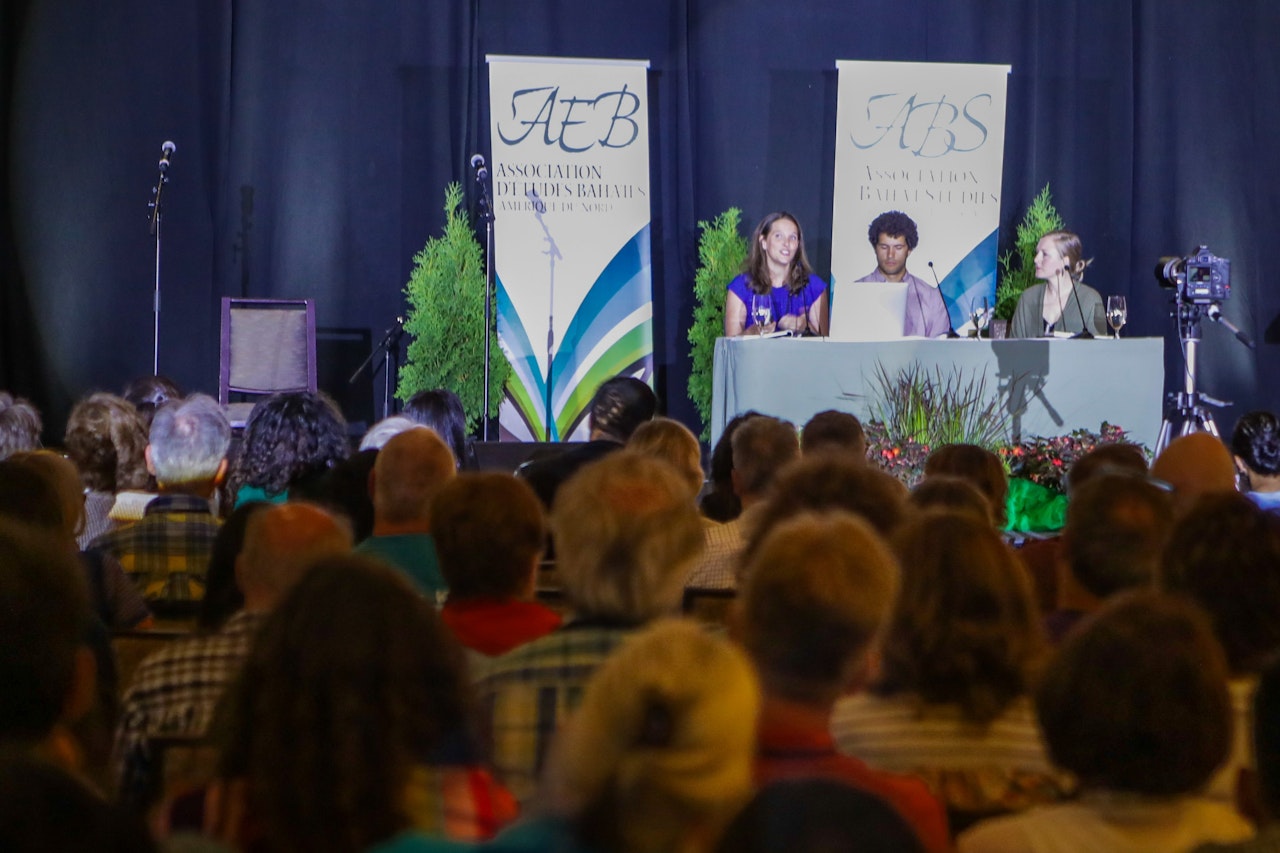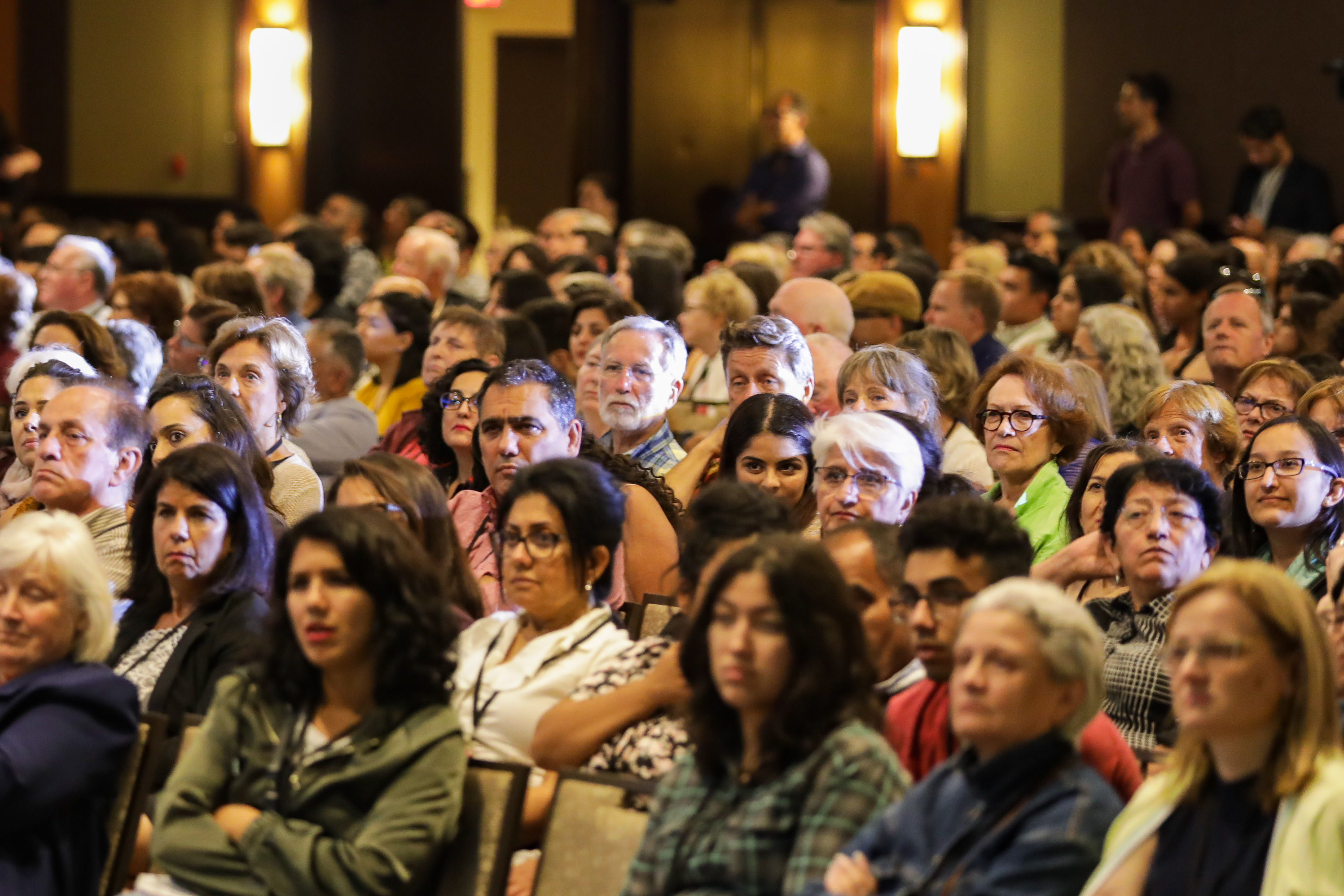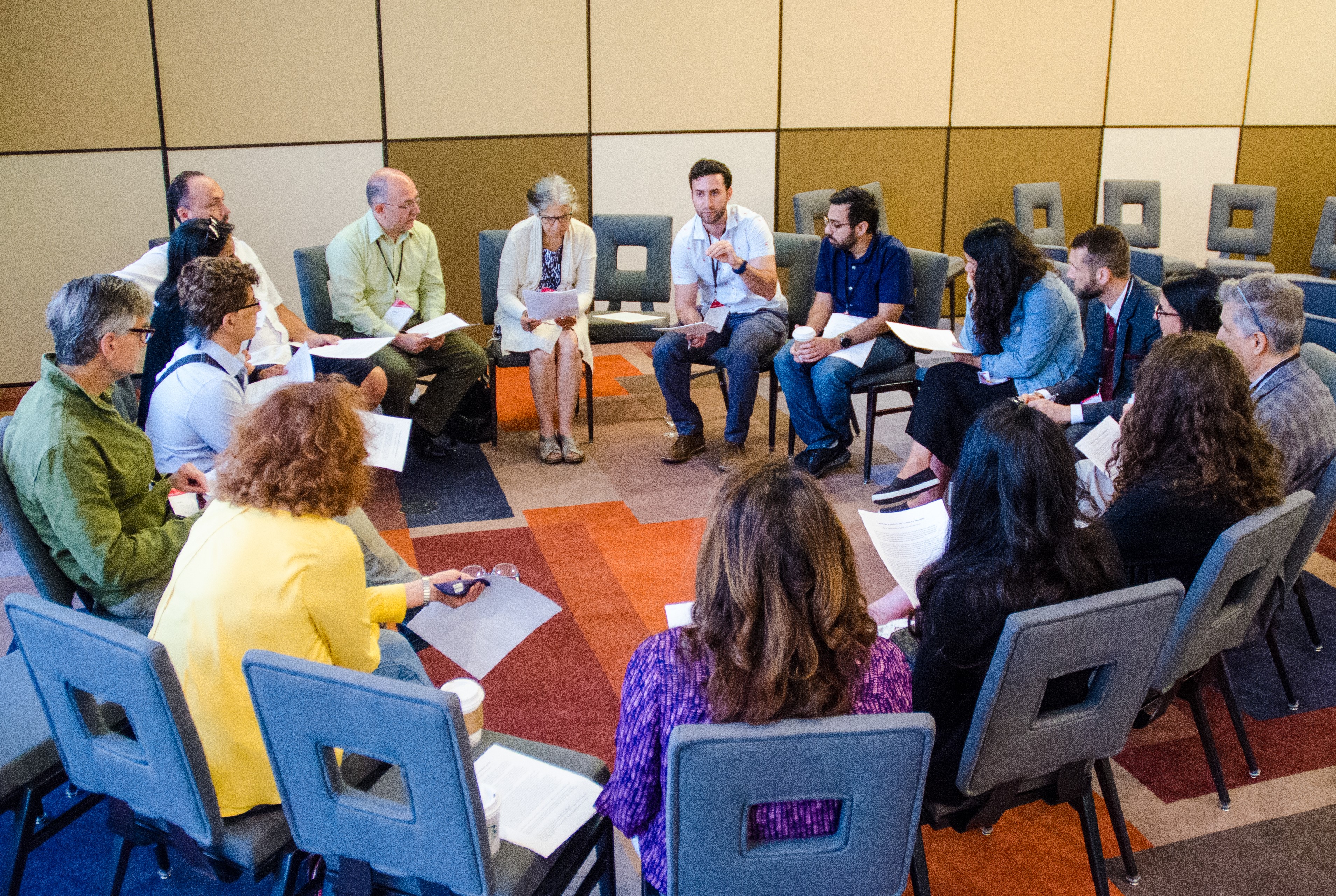
OTTAWA, ONTARIO, Canada — Baha’i studies involves the effort to understand Baha’u’llah’s teachings, correlate them with the perspectives of humanity across diverse fields, and attempt to apply them to humanity’s current issues and challenges. The Association for Baha’i Studies’ 43rd annual gathering, held earlier this month in Canada’s capital city, featured thought-provoking and lively discussions on topical issues. The 1,400 conference attendees reflected on their efforts to contribute to spiritual and social transformation through the application of principles such as justice and oneness.
“One can critique the current social structures, but more can be done to, for example, inspire a hopeful vision for society,” explained Julia Berger, the secretary of the Association’s executive committee.
This year’s four-day conference also reflected an important re-visioning of the Association’s annual gathering. “We’ve tried to reimagine the conference to look more broadly at the intellectual life of the Baha’i community. We’ve taken very deliberate steps and are highlighting nascent but significant initiatives,” Dr. Berger said.

One of those initiatives is the Association’s effort with “working groups,” a collection of people building capacity to engage in a common professional or academic exploration and study. These groups—which meet throughout the year and are focused on topics such as media, economics, healthcare, education, and law—are beginning to analyze the implicit assumptions and concepts in their fields. Participants are relating this collaborative exploration of the deeper questions and concerns in their fields with the Baha’i teachings and the experiences of the community.
The group focused on economics, for example, began studying different threads of thought related to the extremes of wealth and poverty. Some then began exploring the role of community in economic life and how assumptions about human nature have shaped economic thought and practice. The growing Baha’i experience in community building and social action, as well as the Baha’i teachings about the nobility of people, also shed light on these questions.
The long-term objective is to help advance thinking in different fields in ways that foster the application of spiritual principles such as justice and unity to the needs of society, explained Selvi Adaikkalam Zabihi, who helps coordinate the working groups for the Association.
“We are in the early stages of this work, and our understanding is evolving as the groups move forward and we learn along with them,” Ms. Adaikkalam Zabihi noted.
This year’s plenary talks included topical themes such as racial justice, spiritual and moral development of youth, and reconciliation between indigenous and non-indigenous people in Canada. Conference organizers explained that they wanted to highlight approaches and principles that would also aid Baha’i participation in the discourses of society.

The conference provided opportunities for individuals to strengthen their capacity to participate in broad conversations focused on social betterment. This participation includes the contribution of individuals to discourses in the social and professional spaces in which they find themselves. Baha’i communities also contribute to social discourses through the formal involvement of their national and international institutions with various agencies of their societies.